In today’s complex financial landscape, many retirees are looking for innovative ways to secure their financial future. Two options that often come up in discussions are reverse mortgages and social security. While these two financial products may seem unrelated at first glance, there is a hidden link between them that can significantly impact retirees’ financial well-being. In this article, we will explore the relationship between reverse mortgages and social security, how they can complement each other, and the considerations retirees should keep in mind when making financial decisions.
Reverse Mortgages and Social Security: An Overview
Unlocking Home Equity
Reverse mortgages are financial products designed specifically for homeowners aged 62 and older. These mortgages allow retirees to tap into the equity built up in their homes over the years. Instead of making monthly mortgage payments, borrowers receive payments from the lender. These payments can be received in various forms, including a lump sum, regular installments, or as a line of credit. The loan is repaid when the homeowner sells the house, moves out, or passes away.
Social Security: A Retirement Safety Net
Social Security is a federal program that provides a safety net for retirees, disabled individuals, and survivors. It is funded through payroll taxes and offers retirees a regular income stream during their retirement years. The amount received from Social Security is based on factors such as the individual’s earnings history, the age at which they start receiving benefits, and their lifetime contributions to the program.
The Hidden Link: How Reverse Mortgages Can Boost Your Retirement Income
Reverse mortgages can play a significant role in enhancing retirement income for individuals relying on Social Security benefits. By accessing the equity in their homes, retirees can supplement their monthly income, bridge the gap between their expenses and Social Security payments, or meet unexpected financial needs. The additional funds can be used to cover healthcare expenses, home renovations, travel, or any other expenses retirees may have during their golden years.
Maximizing Social Security Benefits with Reverse Mortgages
One of the key advantages of utilizing a reverse mortgage is that it can help retirees delay claiming Social Security benefits. By accessing the home equity through a reverse mortgage, retirees can delay taking Social Security, allowing their benefit amount to increase over time. This strategy can be particularly beneficial for individuals who expect to have a longer lifespan or have a higher earning history, as it can result in higher monthly benefit payments from Social Security when they eventually start claiming.
Income Diversification and Flexibility
Another hidden link between reverse mortgages and Social Security is the opportunity for income diversification. Relying solely on Social Security benefits may not provide retirees with the level of financial security they desire. By incorporating a reverse mortgage into their retirement plan, individuals can diversify their income sources and have more control over their finances. This additional income stream from a reverse mortgage can act as a buffer during market downturns or unforeseen expenses, providing retirees with peace of mind and financial stability.
Key Considerations and Potential Pitfalls
While reverse mortgages can be a valuable tool for retirees, it is essential to consider the potential pitfalls and drawbacks associated with these financial products. Understanding the risks involved and making informed decisions is crucial for retirees to make the most of reverse mortgages and Social Security.
Impact on Social Security Eligibility and Taxes
It’s important to note that reverse mortgage proceeds are not considered taxable income and do not typically impact eligibility for Social Security benefits. However, it’s essential to consult with a tax advisor to understand the potential tax implications based on individual circumstances.
Loan Repayment and Homeownership Obligations
Reverse mortgages require borrowers to meet certain obligations to maintain the loan, such as paying property taxes, homeowner’s insurance, and maintaining the property. Failing to meet these requirements could result in default and potential foreclosure. Retirees considering a reverse mortgage should carefully evaluate their ability to meet these obligations and ensure they have a plan in place to fulfill them.
Impact on Heirs and Estate Planning
Reverse mortgages can impact the inheritance left to heirs. When the borrower passes away, the loan becomes due, and the heirs may need to repay the outstanding balance to keep the property or sell it to settle the debt. It’s crucial for retirees to discuss their estate planning goals and potential implications with their loved ones and seek professional advice to ensure their wishes are met.
FAQs
Can I receive Social Security benefits while having a reverse mortgage?
Yes, receiving Social Security benefits is not affected by having a reverse mortgage. Social Security payments continue as scheduled, regardless of the reverse mortgage status.
Can a reverse mortgage affect my eligibility for Medicaid?
A reverse mortgage can impact eligibility for Medicaid as it may be considered an available asset. It’s crucial to consult with an elder law attorney to understand the potential implications on Medicaid eligibility.
Is there a limit on the amount I can borrow with a reverse mortgage?
Yes, there are limits on the amount you can borrow with a reverse mortgage. The specific limit depends on factors such as your age, the appraised value of your home, and current interest rates.
Can I pay off a reverse mortgage before the loan term ends?
Yes, you have the option to repay the reverse mortgage at any time before the loan term ends without incurring any prepayment penalties. This allows flexibility if you decide to sell the property or no longer require the reverse mortgage.
Can I change my mind after obtaining a reverse mortgage?
Yes, borrowers have a “right of rescission” period, usually three business days, during which they can change their mind and cancel the reverse mortgage without penalty.
What happens if I outlive the reverse mortgage loan?
If you outlive the reverse mortgage loan, you can continue to reside in the home without making monthly mortgage payments. The loan will become due when you sell the property, move out, or pass away. At that point, the outstanding balance must be repaid.
The LeaderOne Lowdown on Reverse Mortgages and Social Security
As retirees navigate their financial options, it is essential to understand the hidden link between reverse mortgages and Social Security. While each financial product serves a distinct purpose, they can work together to enhance retirement income, provide flexibility, and improve financial security. Retirees should carefully consider their individual circumstances before making any decisions. By leveraging the hidden link between reverse mortgages and Social Security, retirees can better navigate their financial journey and enjoy a more comfortable retirement. Contact the LeaderOne Financial Roller Mortgage Team to get started today.



